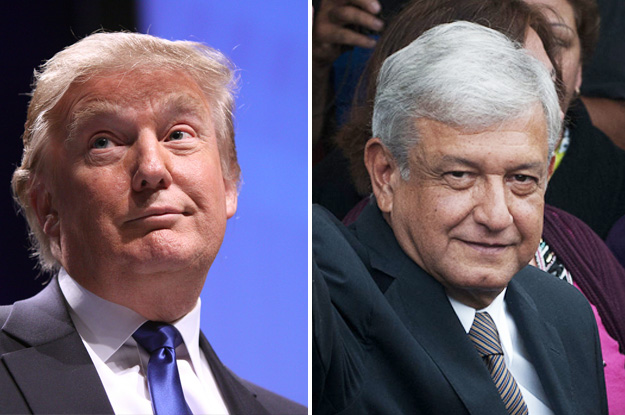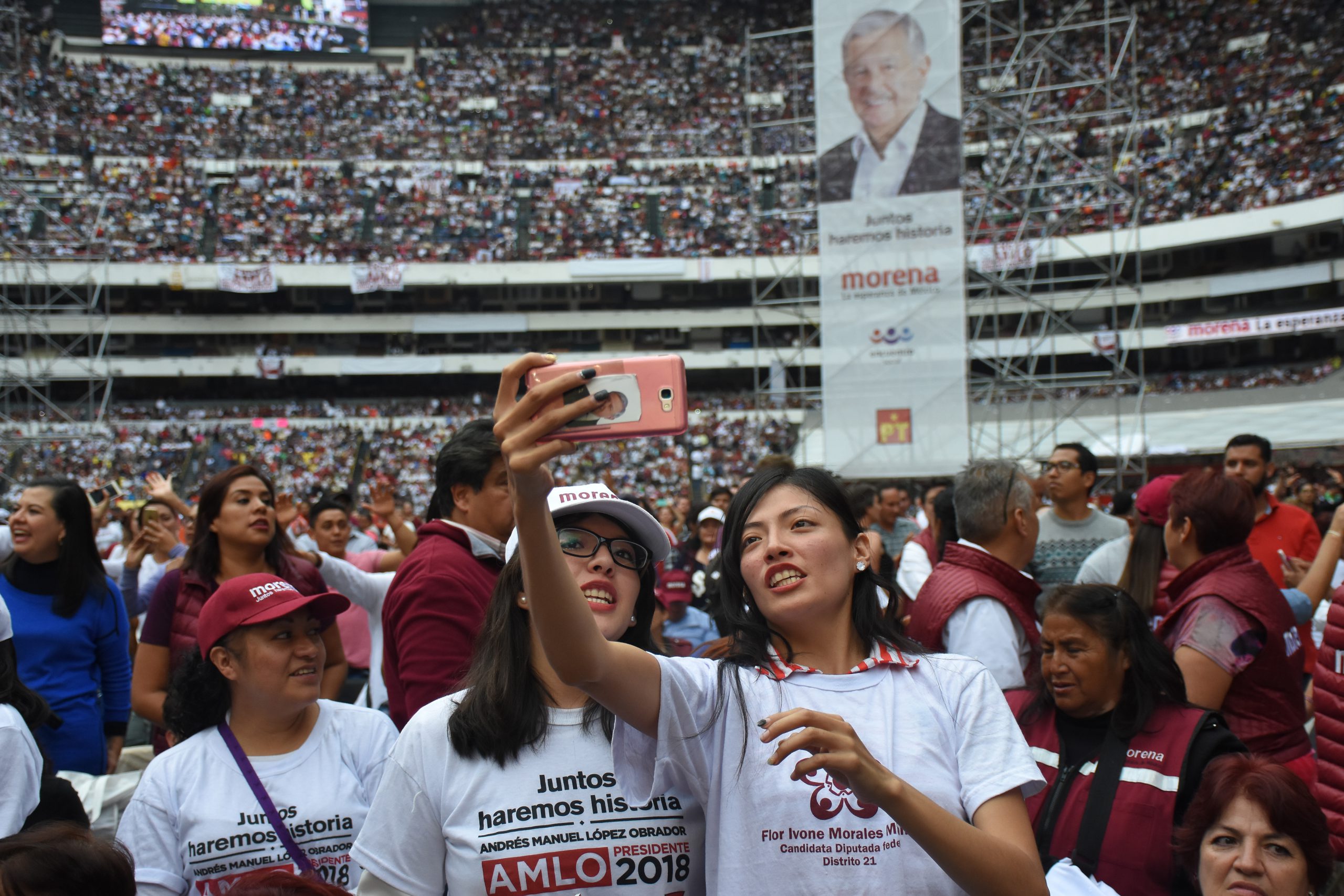When Donald Trump says he might not accept the result of the U.S. presidential election on November 8 (unless he wins), listeners in Mexico can be forgiven for thinking the claim sounds familiar: their own populist presidential contender, Andrés Manuel López Obrador, has twice refused to accept defeat in national elections.
The similarity is not lost on Mexican political observers. No sooner had Trump made the remark at a debate in October than Twitter lit up with caustic comments and memes of the two men, including some showing Trump and López Obrador morphing into the same person, all while “AMLO y Trump” trended on Twitter.
“Why, having distinct ideologies, do Trump and AMLO (as López Obrador is known) sound the same? Because they share a messianic narrative and say they’re confronting malevolent powers,” tweeted Fernando Belaunzarán, a politician and member of López Obrador’s former Democratic Revolution Party (PRD).
Though Trump’s rise stirs disquiet in Mexico – he has threatened to fence of the frontier and roll back two decades of economic integration with the United States, for a start – many in the country’s political class find it hard to attack him without also taking shots at AMLO, a politician whom elites have previously compared to Venezuela’s late former President Hugo Chávez and branded “a danger for Mexico.”
AMLO has been a fixture on the Mexican political left for more than two decades, rising to national prominence as the head of government in Mexico City in the early 2000s. He is known for protests such as blocking Pemex facilities in the state of Tabasco over pollution and (most notoriously) beckoning supporters to the streets of the capital for a six-week blockade after narrowly losing the 2006 presidential election. He later declared himself “legitimate president” in an act of political theatre.
Like Trump, AMLO rails against opponents in unflattering language, branding them, “The mafia in power.” He regularly accuses the country’s electoral institute and electoral tribunal of working against him, though his MORENA party claims a portion of the billions of pesos in public money showered annually on political parties.
AMLO also indulges conspiracies, often plays the victim and attacks unfavorable polls. He attacks media bias, too (though not necessarily without cause, according to analysts).
“There are parallels in their populism, the superficiality of their proposals, the messianism, the constant use of lies as a political weapon,” said Claudio X. González, president of a pair of non-governmental groups involved in education reform and combating corruption – and an ardent critic whom AMLO publically attacks.
“(AMLO) invents and simulates things at his pleasure, knowing there is a market for this in some media outlets and, in this sense, he is abusing the social fabric and he is destroying institutions.”
The comparison has prompted some political observers to posit that it is AMLO – not Trump – who spooks Mexico’s elites most with his populist talk, refusal to play by the unwritten rules of a political system he considers corrupt (but doesn’t abandon) and his propensity to portray himself and his arrival in the presidency as the solution to the country’s problems.
“In the realpolitik, AMLO is much more dangerous than Trump for political groups in Mexico,” said Gerardo Priego Tapía, a former National Action Party (PAN) congressman from Tabasco. “(Trump) is not a threat to the elite ‘caste’ of the political class, which is full of privileges and excesses. They see him as a problem for the United States and the Mexicans there, not for themselves.”
Business leaders in particular see an AMLO presidency in 2018 (he is leading in some early polls) as a frightening proposition. He says he would roll back recent reforms that have opened Mexican industries to private and foreign competition (he predicts a “second oil nationalization” in 2018). Most observers view those reforms, though imperfect and yet to deliver on promised economic gains, as essential to Mexico’s future growth; AMLO doesn’t see the need for them at all. He’s also skeptical on trade, promises to undo an education reform requiring teacher evaluations and champions populist proposals like building five new refineries, slashing the government-set gasoline price and selling the presidential airplane.
Still, comparisons between López Obrador and Trump can only go so far.
AMLO rose from humble origins in Tabasco, has stuck to a set consistent policies and governed capably in the national capital from 2000 to 2005. Critics have condemned his policies in Mexico City as populist – implementing programs such as providing single mothers and seniors with stipends and building elevated freeways – yet politicians, including current President Enrique Peña Nieto, quickly copied his initiatives in other parts of the country.
“His tenure as Mexico City mayor provides strong evidence that he is not a (Hugo) Chávez-like figure,” said Carlos Bravo Regidor, professor at the Center for Research and Teaching in Economics.
“(AMLO) is still the politician with most ‘street cred’ in Mexico. He can still mobilize quite a lot of people – and not only ‘acarreados’ (those herded into protests) – because of his appeal,” Bravo added. “That is something the elites fear a lot: popular support. Somebody who can have an alternative source of power beyond them.”
Critics often accuse AMLO of damaging democracy – demonstrated by the annual Latinobarómtero poll – with his protests and refusal to accept elections. But analysts say the political class’ inability to curb corruption or govern effectively is as much or more to blame as AMLO, who hasn’t held elected office in 11 years.
“(AMLO) makes it easier to slap democracy in the face. That’s true. But that’s not what’s at the bottom of the problem in Mexico,” said Federico Estévez political science professor at the Autonomous Technological Institute of Mexico. “Democracy is undermined by bad results and inept elites, meaning elected officials.”
As for AMLO himself, he thinks the comparisons to Trump are simply an attempt to associate him with the foreign villain du jour. Following the third presidential debate, he was dismissive of any claims of similarity. “No manchen,” roughly translated as “gimme a break,” he tweeted.
Now who does that remind you of?
—
Agren is a freelance journalist based in Mexico City.








